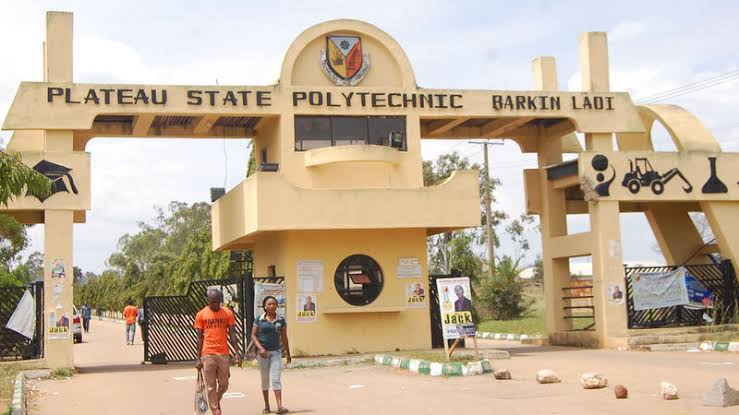Ending the HND/B.Sc disparity in Nigeria’s labour force: A myth or reality?

By Momoh, Emmanuel Omeiza
Very recently, the Nigerian legislative chambers passed for the umpteenth time the bill ending the dichotomy between HND and Bsc holders. However, the promulgation may be short-lived due to Nigeria’s unbalanced way of political administration.
In thr first instance, the joy and aspiration of any Nigerian citizen shortly after conception is to be educated and thereafter seek for profitable employment. For those, who do not want to go through this route, they end up learning trades coupled with the educational degrees they have acquired. Which ever way one decides to take, the end result is to be financially independent and also contribute effectively to national development.
But imagine spending years writing the stress of writing the Unifies Tertiary Matriculations Examinations (UTME) organised by the Joint Admissions and Matriculations Board (JAMB), studying relentlessly to achieve high and quality grades without having to go to shorter routes of bribing lecturers, enduring the heat and scourge of Nigeria’s educational system which has been faulted countlessly, finishing with good grades and proceeding for the mandatory national youth service only to be told after this that one does not qualify to be a graduate on the mere singular factor of not attending a University.
I recently read the excerpt below for one of Nigeria’s famous national dailies:
“After I completed my high school, I was unable to secure admission to the various universities I applied to. In order for me not to spend donkey years at home, I opted to study at a polytechnic and eventually came out with a distinction. However, give years down the line, I am unable to secure any profitable employment. Anytime I apply, I am always told they are looking for graduates. I tell them that I am one since I have completed my national service. The response I get is that a graduate is one with a Bachelor’s degree”
The above expert undisputably is what many a Nigerian graduate have been subjected to. Even with he avalanche of choicest of opportunities that abound especially as relating to job placements, many graduates may not be able to make waves and key into all these opportunities apparently as a result of the fact that they do not own a bachelor’s degree.
Even with the current realities of the Nigerian social environment which continues to be a source of bewilderment and amazement to many, it is sad that issues such as the HND/B.sc dichotomy continue to be a on the front banner of the labour force even with several laws and sanctions put in place to check mate the spread of this challenge.
But it isn’t surprising after all, the Nigerian environment operates on a reverse side. It is one where those who do not have any educational qualification to boast of are placed in enviable positions while those with multiple degrees are relegated to the positions of being servants.
What qualifies one to be a graduate?
The laws establishing the requirement for participating in national service according to the National Youth Service Corps Stipulate that a person must have completed an approved course either at a University or a polytechnic and must have been awarded a Bachelor’s Degree or a Higher National Diploma.
The above translates to the fact that both a Bsc and HND holder can climb up to any ladder as far as social status is concerned. However, a critical look reveals an upside turnaround in events. Many have erroneously believed that it is what obtains abroad that Nigeria is trying to adapt to her own scenario. On the other hand, Nigeria is a multi-complex society which according to someone does the right thing using the wrong timing and approach”.
In advanced countries such as the United States and United Kingdom, those with diplomas are placed in sectors such as construction and manufacturing so they can put their skills into practical usage while those with bachelor’s degrees are placed in managerial and administrative positions. There is little or no disparity with reference to remunerations or promotions as both holders are paid as appropriate.
The government which should have assisted in eradicating this disparity isn’t helping matters as many of its choicest agencies are also subscribing to the HND/Bsc dichotomy.
In 2019, the Nigerian National Petroleum Corporation opened up vacancies for employment. Part of the criteria was that only university graduates were eligible or those with diplomas and a master’s degree. This shook the entire polity to its feet and generated different gyrations and controversies. In the end, nothing was done as those who challenged it kept their silence in the end.
What then is the essence of establishing polytechnics and other allied technical institutions if eventually graduates from these institutions cannot stand shoulder to shoulder with their colleagues who graduated from Universities in areas such as remuneration and career advancements.
I read of a parent who wouldn’t allow her children study at a polytechnic even after donkey years of not gaining admission to a University. Can we fault her decision? No, especially considering the rigour of seeking employment as an HND holder.
Apart from the age grade quota, the HND/Bsc disparity seems to be another fox destroying the vineyard of Nigeria’s Labour Force. Imagine being an HND holder and being subjected to servitude by someone you graduated with at the same time due to the fact that he or she is a Bachelor’s degree holder. What in the end would this lead to? Increase in crime rate, depression and suicide.
Well before the ugly situation gets out of hand, the government and its associated agencies must take the bull by the horn and be a pacesetter towards eradicating this ugly scourge which is gradually ravaging the nation’s labour force. This goes beyond constant debating and promulgating laws which eventually do not hold water.

